Disk Management not loading? Well, it may be due to any of the faulty/corrupt system files existing on the disk drive.
The Disk Management tool comes in pretty handy on Windows for managing hard drives, the file system, and disk volumes, all in one place. It is a built-in system utility tool that is also used for troubleshooting common errors and bugs. So, what would you do if the Disk Management app on Windows fails to load? You certainly cannot overlook this issue, right?
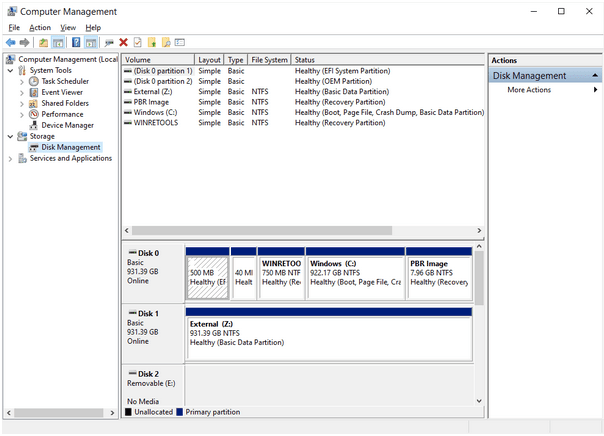
In this post, we have listed a few solutions to resolve the “Disk Management not loading on Windows 10” issue. You can use any of the below-mentioned hacks if Disk Management is taking an unusually long time to load.
Let’s get started.
Also read: 10 Best Disk Management Software for Windows 10, 8, 7
How to Fix the “Disk Management Not Loading” Issue on Windows 10?
1. Customize the Windows Services
Press the Windows + R key combination to open the Run dialog box. Type “services.msc” in the textbox and hit Enter.

In the Services window, look for the “Remote Access Auto Connection Manager” on the right side.
Double-tap on it to open its Properties. Tap the drop-down next to the Startup type option. Set the Startup type value as “Disabled”. Press the OK and Apply button to save the recent changes.
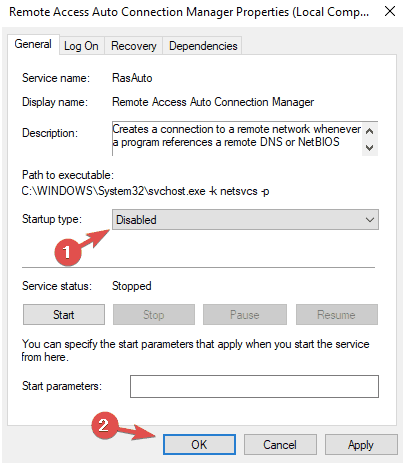
Now, head back to the list of Services. Double-tap on the “Remote Access Connection Manager”. In the Properties window, set the “Startup type” value as “Disabled”. Hit the OK and APPLY button to save the changes.
Head back to the Services window again, look for a service named “Virtual Disk”.
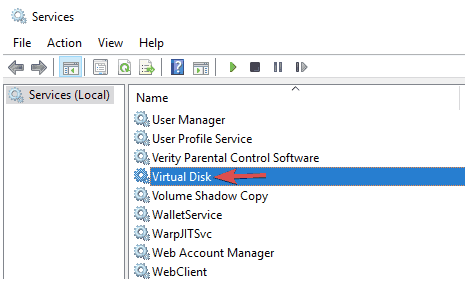
Double-tap on it to open the Properties. Set the Startup type value as “Automatic” or “Manual”. Press the Apply and Ok button to save your changes.
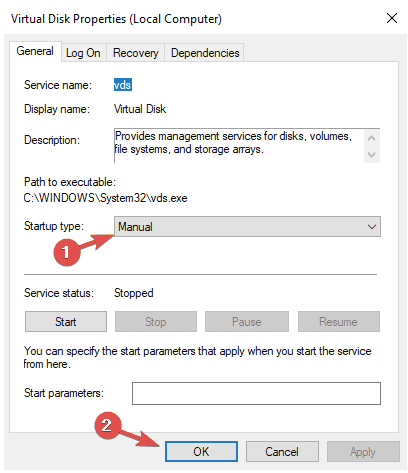
Once the above-mentioned changes are done, exit all windows and reboot your device. Try to load the Disk Management tool again to check if the issue persists.
Also read: Why & How To Disable Microsoft Services On Windows 10
2. Run the SFC Scan
SFC (System File Checker) is an in-built Windows utility that scans and repairs corrupt system files and restores any discrepancies if found. To run the SFC command on Windows 10, follow these steps:
Launch the Start menu search box placed on the Taskbar, type “Command Prompt”, right-click on its icon, and select “Run as Administrator”.
In the Command Prompt terminal, type the following command and hit Enter:
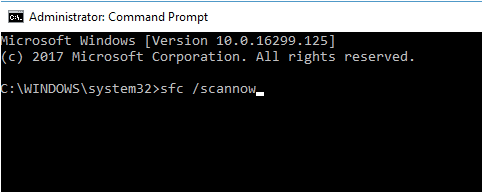
sfc/scannow
Wait for a few minutes until the scanning process is completed. If any corrupt system files are found, Windows will repair them and replace them with a cached copy.
Exit the Command Prompt window and check if you’re still experiencing the “Disk Management not loading” issue.
Also read: SFC Scan Stops Working on Windows 10? Here’s the Fix!
3. Disconnect External Peripherals
Is your Windows PC connected with any external devices like a speaker, USB stick, memory card reader, and so on?

If yes, we advise you to disconnect all external devices and then reboot your machine. There may be a few times when an external device can interfere with your device’s settings. Once you’ve removed all the external peripherals, load the Disk Management tool and see if it’s able to function properly.
4. Update Windows OS
Are you operating on an outdated version of Windows 10? Incompatibility issues can also be a reason for encountering the “Disk Management not loading” issue on Windows 10. To get past this issue, you can try updating your Windows OS to the latest version.

To check for updates on Windows, tap the Windows icon placed on the Taskbar, select the gear-shaped icon to open Settings. Tap on “Update and Security”. Hit the “Check for Updates” button to find out if any updates are available for your device.
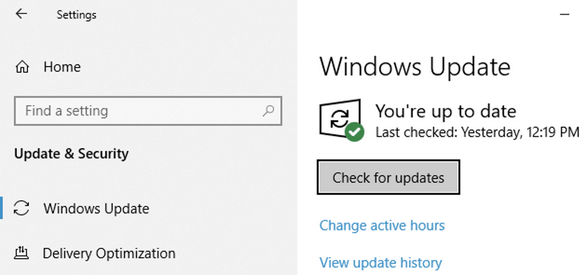
5. Download Advanced System Optimizer
Insufficient storage space and corrupt system files can trouble the Disk Management to load successfully. Using a third-party cleaner tool can allow you to instantly free up storage space and enhance your device’s performance in just a few clicks.
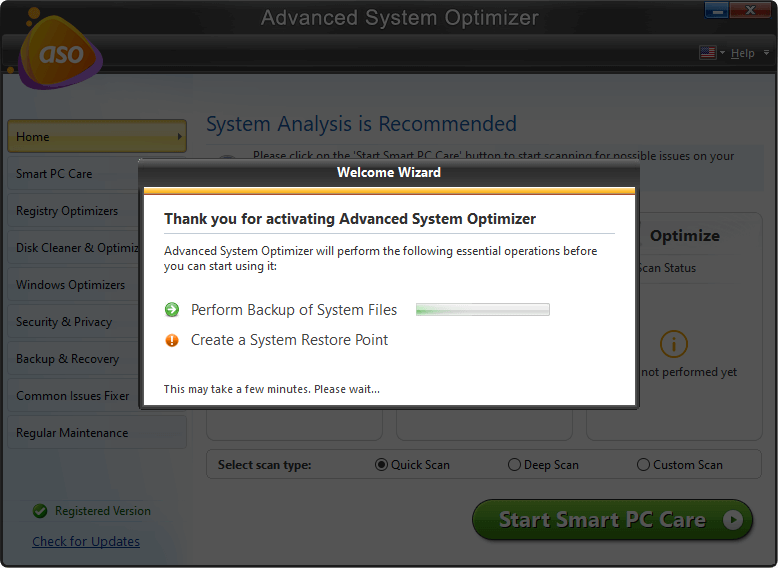
Download and Install Advanced System Optimizer on your Windows PC to get rid of junk files and fine-tune its performance. Advanced System Optimizer is one of the best cleaner tools for Windows that performs a secure/encrypted deletion of junk data.
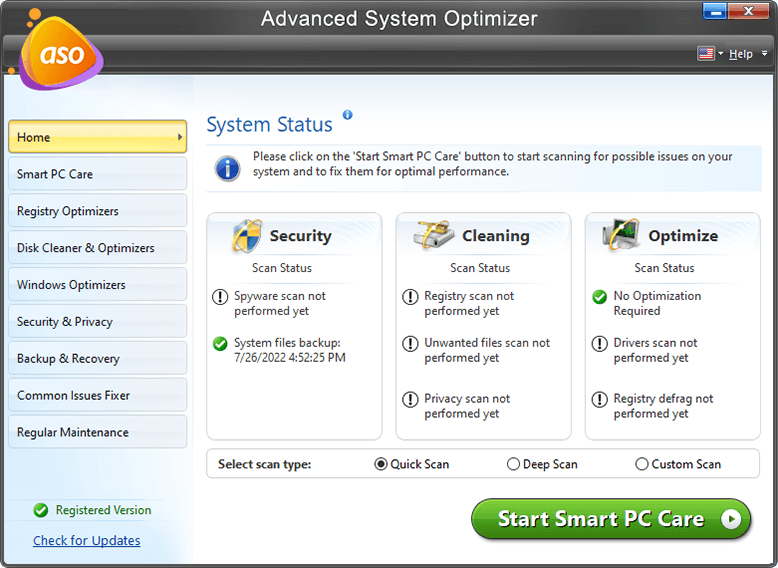
Advanced System Optimizer also acts as a disk management tool and allows you to defragment your hard drive efficiently. It also prevents your device from unexpected crashes, app failures, and slowdowns.
Conclusion
Here were the 5 most effective ways to resolve the “Disk Management not loading” issue on Windows 10. You can use any of these methods to get the Disk Management tool up and running again within no time.



 Subscribe Now & Never Miss The Latest Tech Updates!
Subscribe Now & Never Miss The Latest Tech Updates!